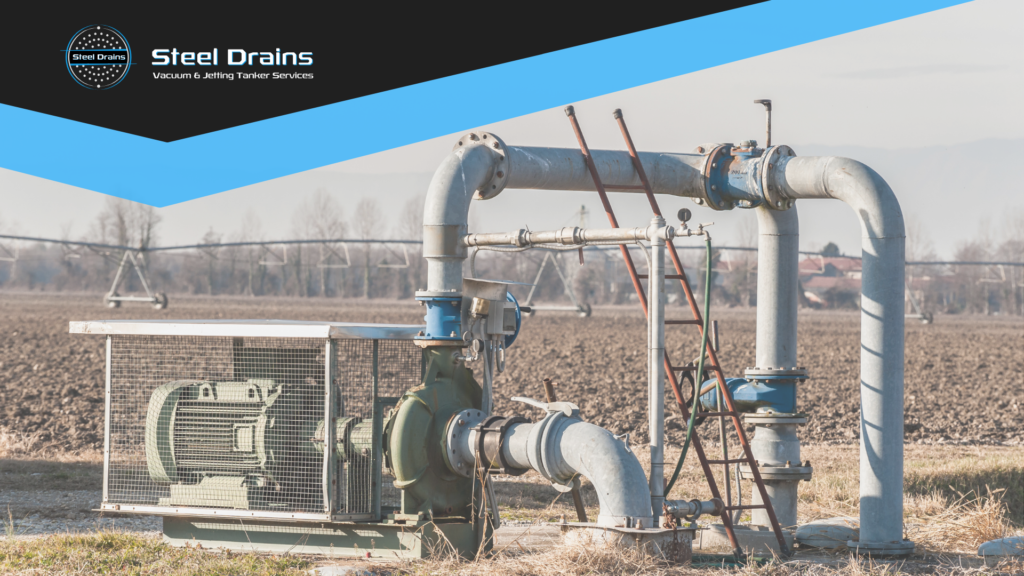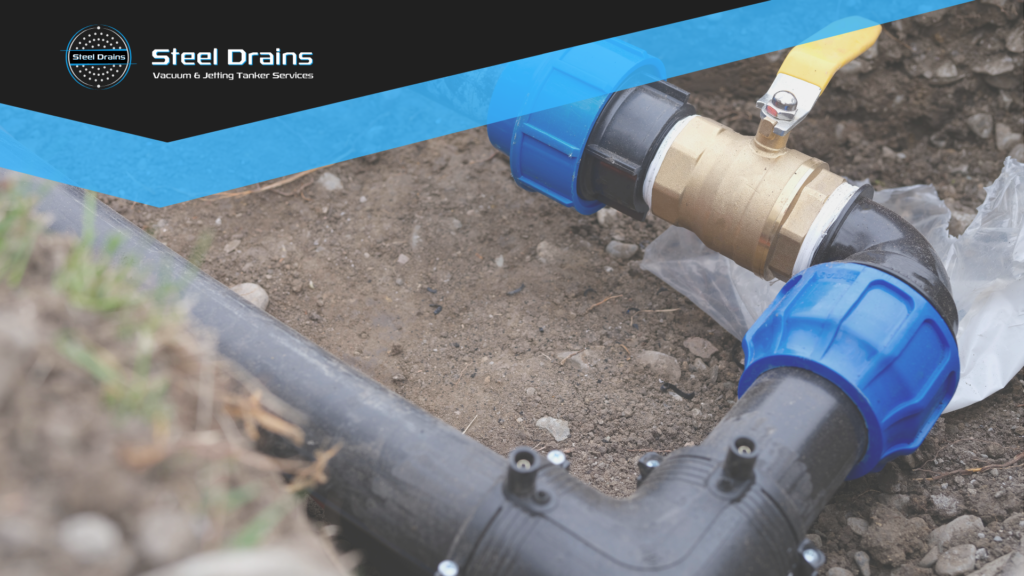Introduction
Regular pump station servicing is not merely a routine task; it is a critical necessity that directly impacts operational efficiency and environmental compliance. Pump stations play an essential role in liquid waste disposal, ensuring that wastewater is effectively transported to treatment facilities. However, without proper maintenance, these systems can fail, resulting in costly downtime that disrupts operations and has significant financial implications for facility managers, municipal authorities, and businesses reliant on effective wastewater management systems.
The Essential Role of Pump Stations in Wastewater Management
Defining Pump Stations
Pump stations are integral components of wastewater management systems, designed to move sewage and wastewater from lower to higher elevations, often to treatment facilities. They consist of a collection tank, pumps, and controls that work together to transport liquid waste efficiently. In the UK, pump stations are commonly found in both urban and rural settings, serving residential areas, industrial parks, and commercial establishments.
Types of Pump Stations
There are several types of pump stations, each serving specific needs:
- Gravity Pump Stations: Utilising gravity to collect and transfer wastewater, these stations are effective in areas with natural slopes.
- Lift Stations: Designed to lift wastewater from low to high elevations, lift stations are prevalent in flat regions where gravity flow is insufficient.
- Submersible Pump Stations: These stations have pumps submerged in the wastewater, reducing the need for a dry well and allowing for efficient operation in limited space.
- Dry Well Pump Stations: Featuring pumps located above ground in a dry well, these stations are easier to maintain but require more space.
Understanding the type of pump station in operation is crucial, as it dictates the servicing requirements and the potential challenges that may arise without regular maintenance.
Early Detection and Prevention of Failures
Identifying Potential Problems
Routine inspections and performance testing are vital for the early detection of potential issues within pump stations. These inspections should include:
- Checking for unusual noises that may indicate mechanical wear.
- Monitoring vibrations that could signify misalignment or imbalance.
- Inspecting for leaks around seals and joints.
By identifying these signs early, facility managers can address minor issues before they escalate into significant problems that lead to costly downtime.
Preventing Blockages
Regular cleaning and maintenance are essential for preventing blockages that can lead to pump failure and sewage spills. This includes:
- Removing debris and sediment from the wet well.
- Inspecting and cleaning the intake screens to ensure unobstructed flow.
- Implementing a routine flushing schedule for pipes to remove buildup.
Such preventative measures not only maintain the flow of wastewater but also protect the integrity of the pumps and the entire system.
Maintaining Optimal Performance
Ensuring that pumps operate at peak efficiency is crucial in minimising energy consumption and reducing performance-related issues. Regular servicing can involve:
- Calibrating pumps to ensure they function within their designed parameters.
- Checking the alignment of motor and pump shafts.
- Monitoring lubricant levels and replacing them as needed.
By maintaining optimal performance, facilities can achieve energy efficiency, reducing operational costs and extending the lifespan of the equipment.

Extending Equipment Lifespan
Minimising Wear and Tear
The longevity of pump stations heavily depends on proactive maintenance practices that minimise wear and tear. These practices include:
- Regular lubrication of moving parts to reduce friction.
- Timely replacement of worn components, such as seals and bearings.
- Conducting vibration analyses to detect early signs of mechanical failure.
By implementing these strategies, facility managers can significantly extend the operational life of their pump stations.
Reducing the Risk of Catastrophic Failure
Addressing minor issues promptly is essential to prevent them from escalating into catastrophic failures. The consequences of such failures can be severe, including:
- Prolonged downtime that disrupts wastewater services.
- Expensive repairs that may involve complete pump replacements.
- Potential regulatory fines resulting from non-compliance with environmental standards.
By prioritising regular servicing, facilities can mitigate these risks and maintain seamless operations.
Reducing Costs
Lowering Energy Consumption
There is a direct relationship between pump maintenance and energy efficiency. Well-maintained pump stations tend to consume less energy, translating into lower energy bills. Key strategies for improving energy efficiency include:
- Ensuring that pumps operate at their best efficiency point (BEP).
- Implementing variable frequency drives (VFDs) to adjust pump speed according to demand.
- Regularly inspecting electrical connections to prevent energy losses.
By focusing on these areas, facilities can achieve significant cost savings while maintaining efficient operations.
Reducing Emergency Repair Costs
Emergency repairs can be financially taxing, often costing significantly more than scheduled maintenance. Regular servicing enables facility managers to:
- Identify and resolve minor issues before they necessitate urgent repairs.
- Plan for maintenance during off-peak hours, minimising operational disruptions.
- Allocate budgets more effectively by anticipating maintenance needs.
The financial implications of neglecting routine servicing can be staggering, making it crucial to invest in proactive maintenance strategies.
Avoiding Regulatory Fines
Compliance with environmental regulations is a critical aspect of wastewater management. Regular servicing plays a vital role in ensuring compliance by:
- Preventing overflows that can lead to environmental damage and associated fines.
- Ensuring that all equipment meets regulatory standards and operates efficiently.
- Documenting maintenance practices to demonstrate compliance during inspections.
Failure to adhere to these standards can result in substantial financial repercussions, making regular servicing a necessary investment.
Ensuring Compliance
Meeting Environmental Regulations
The importance of regular maintenance in maintaining compliance with environmental regulations cannot be overstated. In the UK, there are stringent regulations governing wastewater management, including the Environmental Protection Act and the Water Resources Act. Regular servicing helps prevent overflows and ensures that pump stations operate within legal parameters.
Maintaining Safety Standards
Routine inspections are essential in identifying potential safety hazards, such as leaks or electrical issues. Addressing these hazards before they cause accidents or injuries is paramount. Key safety measures include:
- Conducting electrical safety checks to prevent shock hazards.
- Inspecting for structural integrity to ensure the safety of personnel.
- Implementing safety training for staff working on or near pump stations.
By prioritising safety, facilities not only protect their employees but also enhance their operational resilience.
Minimising Disruption
Reducing Downtime
Regular servicing significantly reduces the risk of unexpected downtime. This is crucial for maintaining operational efficiency and ensuring that wastewater services remain uninterrupted. Facility managers can implement a maintenance schedule that aligns with operational demands, minimising the impact of servicing on service delivery.
Avoiding Disruptions to Services
A malfunctioning pump station can have dire consequences for wastewater services, affecting residents and businesses alike. Regular maintenance helps to prevent disruptions by:
- Ensuring that all components are functioning correctly and efficiently.
- Allowing for timely repairs and replacements, reducing the risk of system failures.
- Supporting the overall reliability of the wastewater management system.
By prioritising regular servicing, facilities can maintain their commitment to providing uninterrupted services to their communities.

Conclusion
In conclusion, regular pump station servicing is a critical component of effective wastewater management that cannot be overlooked. By prioritising proactive maintenance, facility managers and municipal authorities can prevent costly downtime, extend the lifespan of their equipment, reduce operational costs, and ensure compliance with environmental regulations. The benefits of routine servicing extend beyond mere maintenance; they encompass the overall efficiency and reliability of wastewater management systems. To safeguard against costly disruptions and enhance operational performance, start planning your pump station servicing today!